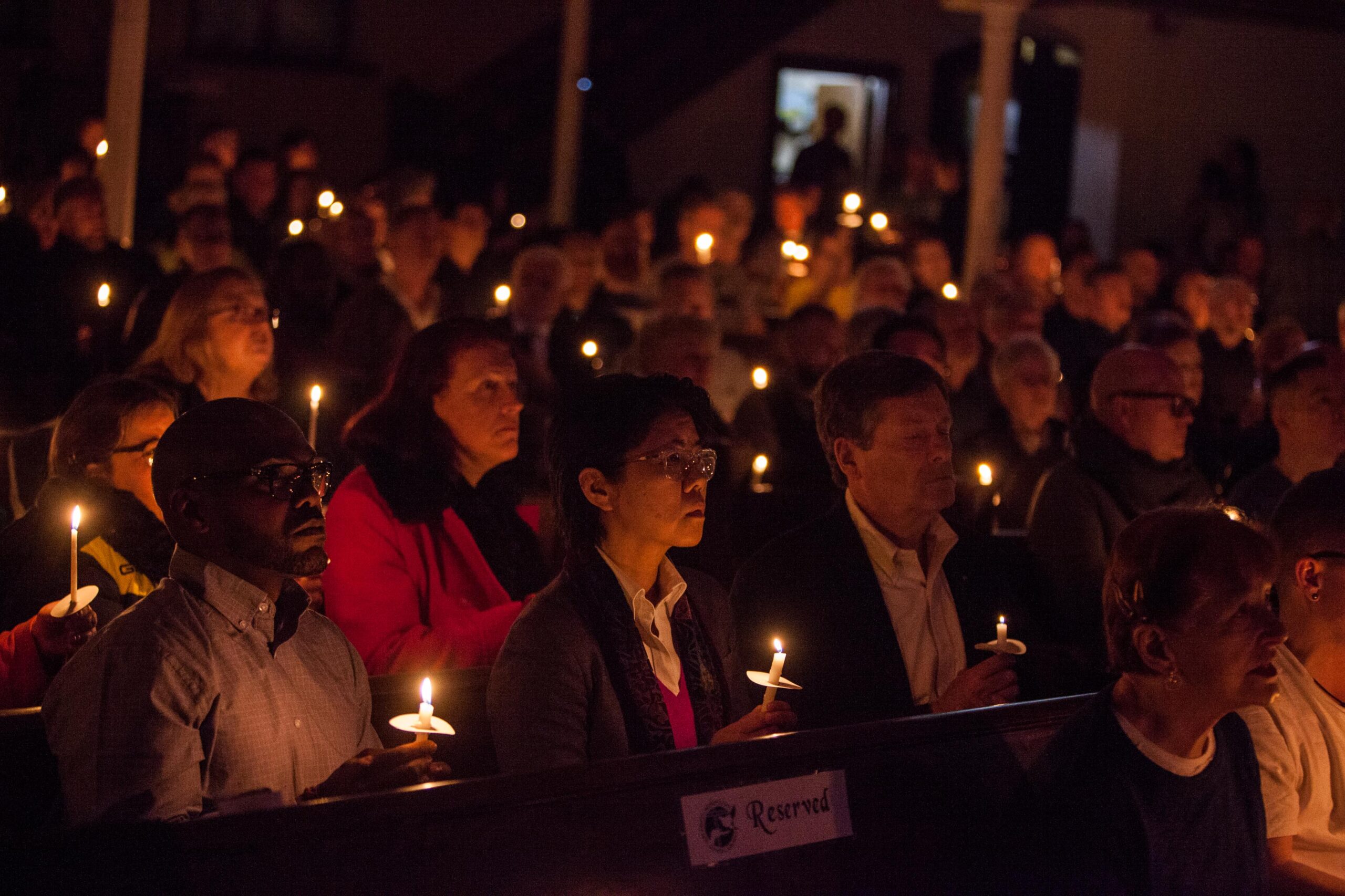When Sarah de Vries went missing in 1998, her friend Wayne Leng did everything he could to try and find her.
He contacted the police, put up posters, set up a tip line and even travelled to Calgary because of a rumour that she might be there.
Her family spoke out to the press, pleading and wondering why the city wasn’t mobilizing to find her and the dozens of other women who had been disappearing.
“If 20 UBC students went missing over the same period of time, there would be mayhem,” Maggie de Vries, Sarah’s sister, said in 1999. “There would be searches and media interest and rewards.”
Jamie Lee Hamilton, the unofficial spokesperson for Vancouver’s sex workers, tried to wake up the public by any means necessary. On a rainy winter day in 1998, she unceremoniously dumped 67 pairs of stilettos at the entrance to Vancouver City Hall, one for every woman who had vanished.
“If these women were not street-involved, there would be an outpouring of concern and immediate action to find their killers,” she said.
Vancouver police had put together a task force to search for a number of the missing women, but they couldn’t bring themselves to say there had been any foul play.
“There is not a single piece of evidence to suggest a serial killer,” Vancouver police’s then-spokesperson Anne Drennan said at the time.
But they were wrong.
Robert Pickton wouldn’t be arrested until 2002. He killed well over a dozen women in the intervening years.
And once again, an alleged serial killer has been stalking the streets of a Canadian city, preying on the vulnerable, weaponizing society’s prejudices to get away with monstrous acts.
Families and friends spread through Toronto, putting up posters and conducting searches. They tried to get the media to pay attention, to wake up a largely apathetic public that something horrible could be going on. They fought the innuendo that these men, some of whom were drug users or sex workers or closeted or “without a fixed address,” must have hurt themselves or run off or overdosed.
If it had been white women from the University of Toronto that had been disappearing over the last decade, there would have been mayhem. But gay men, immigrants, brown men, sex workers, underhoused people can vanish without arousing much notice.
As with Pickton, the police have the most to answer for.
Bruce McArthur was charged with assaulting a man with a pipe in 2001, had been barred from Toronto’s gay village and had dated Skandaraj Navaratnam, the first man reported missing. Navaratnam had previously spoken to friends about McArthur’s allegedly “violent temper.”
Did the police ever come across McArthur’s name when they investigated the missing men in 2012? Did they rule him out? Could lives have been saved if they had acted differently?
But the police are not the only ones to be held accountable.
It’s not difficult for someone to kill another person. What is difficult is to get away with it for years without causing a panic. That requires the participation of the rest of a society.
Despite boastfully declaring Toronto a “sanctuary city,” city council and the police services board have done nothing to stop Toronto police from reporting thousands of undocumented people to immigration authorities every year. Did the fear of deportation hinder this investigation?
In 1999, then-Vancouver Mayor Philip Owen — after much prodding — called for a $100,000 reward for any evidence leading to the missing women. Toronto Mayor John Tory, who has no problem directly relaying the concerns of a wealthy family to police brass, did no such thing.
Sex workers have said for years that criminalizing aspects of their profession makes them unsafe and more vulnerable to violence. Yet the Trudeau government has done nothing to change that. Will this finally be a wake-up call?
Serial killers prey on the vulnerable because they know society treats some people as disposable. And our governments, police forces and other institutions do so much to ensure that people remain vulnerable.
That was true in Vancouver in 1998.
And 20 years later, it remains true in Toronto.

 Why you can trust Xtra
Why you can trust Xtra


